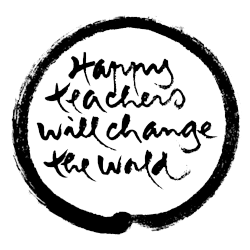Preparing children for success in school and life by developing self-awareness, self-management, critical thinking, relationship skills and social consciousness. Multiple modes of development are used to foster these abilities in children, including workshops, classroom discussions, activities, games, arts and service projects. Programs are also organized in career guidance, financial literacy, health awareness to equip children to make optimal career and life choices.
SEL Collective
The SEL collective is a coming together of children, teachers and parents with the objective of creating a space for discussing how schools and homes can better nurture the overall well-being of children - self management, relationships and social consciousness.
We are inviting institutions, psychologists, counselors, educators, therapists and other professionals to share their experiences in addressing issues of social emotional well-being among children and adolescents in the classroom, schools, homes or the broader community.
If you are interested in writing for the SEL blog, please reach out to us at contact@eikasfoundation.org
Online learning and well-being of children
Veteran educationist Padma Srinath discusses parental strategies for coping with online learning
Read more
Happy Teachers will Change the World
Chitra Teaches Middle School English and Social Sciences at the Yellow Train School
Read more
Nurturing the Innate Intelligence and Cultural Richness
Vidya Vanam is a School set up for Tribal and Underprivileged Children
Read more
Life Skills Network - Mind and Life Think Tank
The Life Skills Network is a think tank supported by the Mind and Life Institute, USA, under the project titled "Contemplative practices for the wellbeing of low-income children and teachers in India." It is a collaborative endeavor organized by five educational not-for-profit organizations - Eikas Foundation, Nalanda Way, Sangath, SwaTaleem
Foundation and Thrive Foundation. The network is further supported by life skills experts, psychologists, educationists and resource organizations.
The Network seeks to enable wellbeing of low-income children by collating
and disseminating best practices from organizations and individuals from across India. In order to generate and disseminate knowledge in this area, the network is engaging with the following stakeholders in the education
system.
- Schools, teachers, school leaders.
- Not-for-profit organizations in the space of education and development; community and parent support organizations.
- Government agencies and functionaries.
Life Skills Network is facilitating discussions among the above stakeholders on what it takes to address the wellbeing of children in low-income communities, including the development of:
- Self-awareness and managing emotions.
- Interpersonal effectiveness and relationship skills.
- Social responsibility.
- Critical thinking and decision making.
- Skills required to succeed in school and the world of work.
Eikas Family Center
Parents, caregivers and families play a critical role in shaping life experiences of children. It is widely acknowledged that these experiences have lasting effects on children’s wellbeing. However, there is a dearth of initiatives that engage with parents. The Eikas Family Center runs programs that support the wellbeing of families. Some of the issues discussed in the forum recently include - Healthy habits, parenting styles, parental relations, dealing with stress, family time, gadget addiction, career choices.
21st Century Skills Program
21st century skills workshops help students develop the skills they need to succeed in school, career and life. Some of the areas covered in these workshops include:
- Resilience
- Understanding yourself
- Success and meaning in life
- Handling difficult emotions, stress and setbacks
- Routines
- Developing healthy habits – body, mind and spirit
- Study skills
- Relationships
- Developing healthy relationships – peers, home, school


